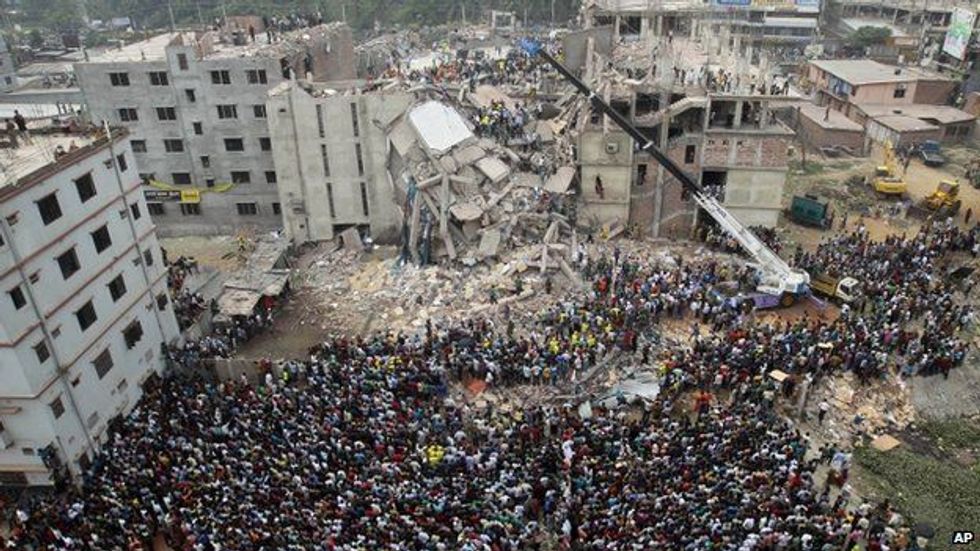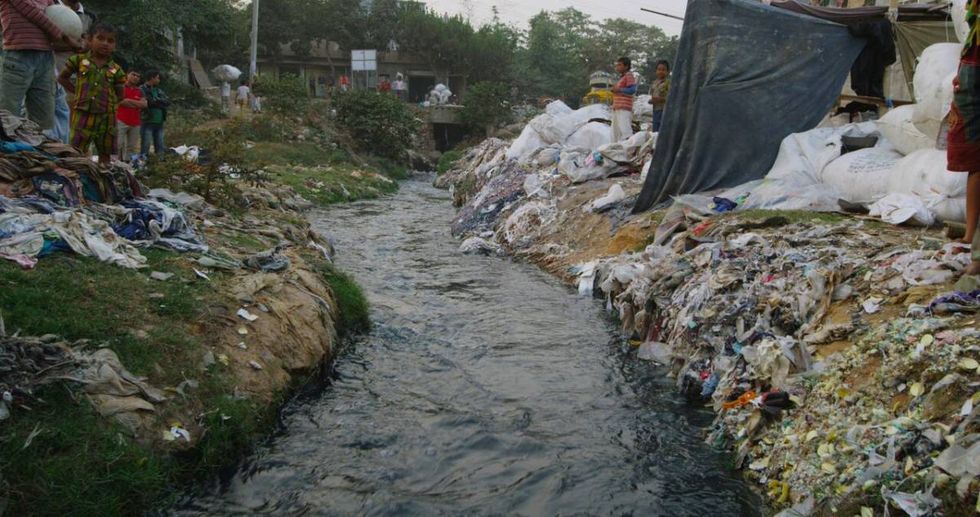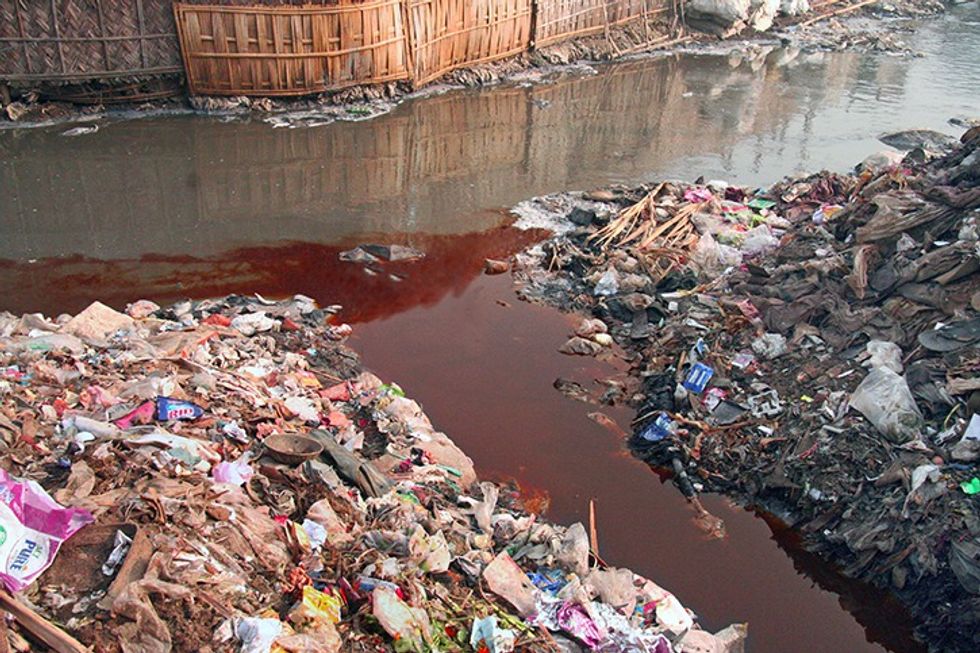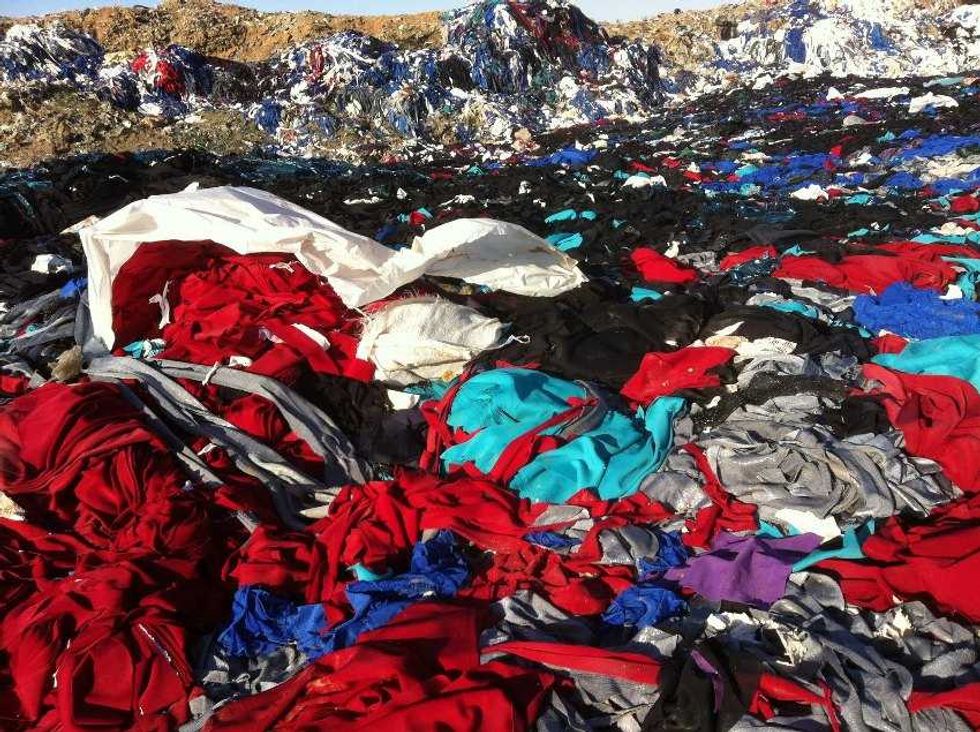We live in a world of fast fashion. New clothes come into stores every single day, and styles are quickly rotated in and out. Not only do these clothes pass through stores quickly, but they do so because they are cheaper than they should be. Why are these clothes so cheap? And why do they come into stores so quickly?
We see stores like Forever 21, H&M, and Zara make massive profits from fast fashion and it seems like it gets covered up over and over again. As soon as we hear about fast fashion, another clothing ad with a catchy song comes up that urges us to go out and shop.
This segment by John Oliver is a great introduction to the social problems around fast fashion, such as labor rights, including working conditions, child labor, and sweatshops.
It is all too easy for us to forget about events that don’t directly affect us, especially ones that happen abroad. International news is brushed under the rug more than we realize. We remember these stories, of course. We remember Boko Haram, and #BringBackOurGirls, and Malaysia Flight 370, and the outbreak of Ebola and Zika. But let’s be honest. Unless something happens in close proximity to us, or to people we know, our concern is all but temporary. Eventually, we forget these events even happened.
Now more than ever we should care about our effects on the rest of the world. We can get cheap clothing, but at what cost to other people and the environment?
The most fatal building collapse related to the clothing industry happened in 2013, in Rana Plaza in Bangladesh. This killed over 1,000 people and injured 2,500 others. This building manufactured clothing for stores like The Children’s Place, Walmart, and Mango.
There have been tragedies like this since then, but it seems that we have become numb to the issues of worker’s rights in the textile/garment industry. We’ve all heard it before: the sweatshops, the low wages, the child labor, and the dangerous working conditions. There is another side to this story that should compel us to not just think about fast fashion, but to hopefully change our shopping patterns and make us consider what went into our clothing.
In a recent article by EcoWatch, author Kathleen Webber writes about the ecological effects of the fashion industry on the rivers in China. She writes, “In China, the factory of the world, it is estimated that 70 percent of the rivers and lakes are contaminated by the textile industry.” She goes on to explain that the textile industry is rarely regulated, allowing for contamination and pollution of waterways with extreme ease. This article also talks about a new documentary, RiverBlue that showcases river pollution from the textile industry.
It is not just about contamination to waterways, though. Webber continues, saying, “the tanneries which supply hides to fashion accessory industries use chemicals that can disrupt the hormonal and nervous systems to those who handle them...young children are seen working with skins and experts have said this has resulted in long term health problems.” The health problems associated with these working conditions alone should be enough for us to care. The chemical contamination of waterways should get us to care.
The massive amount the textile industry wastes each year should be noted as well: 11 million tons in 2015 alone. We are purchasing more clothing than ever because it is cheaper than ever, but we are also wasting more than ever. The clothing that is mass produced and sold at low costs to the consumer is also cheap and doesn’t last long. Most textiles are not biodegradable and stay in landfills for hundreds of years.
According to a Forbes article by James Conca, “the apparel industry accounts for 10% of global carbon emissions and remains the second largest industrial polluter, second only to oil.” Conca then references a website called Zady, The New Standard that implores people to think more about their clothing choices and the hidden consequences behind their purchase. On the websites section about climate change and clothing, it explains that the three main causes behind greenhouse gas emissions from the industry. Those causes are overproduction of clothing, the production of synthetic fibers, and their electricity source. The full website contains much more information than I could write about, but it is definitely worth your time to look around the site to learn more about the ecological effects of your clothing.
It is important to talk about where clothes come from, not just because so much of our clothing has been outsourced in the last decade, but because our purchases affect people and the environment in ways companies keep us blind to. While we are not aware of the unsustainable business practices that happen globally and allow us to buy cheap clothing, we will not generate enough demand for change. After learning about the effects of cheap clothing made in countries such as China, India, Pakistan, Bangladesh, Vietnam, Ethiopia, Indonesia, Sri Lanka, the Philippines, and others, there must be some type of moral sense that what we are doing is unjust.
Allowing others to suffer so we can have fashionable and cheap clothing isn’t acceptable. There are ways to get low cost clothing without exploiting workers (often child workers) around the world. However, while much of our cheap clothing is found in department and clearance stores, people who want to purchase sustainably made clothing may run into financial difficulties. Clothing that is made in the US with environmentally friendly fabrics and made in good working conditions with fairly paid workers is going to be more expensive. For those who have a little extra money to spare on clothing and want to cut down clothing waste, Aplus has a list of alternative clothing brands that are sustainable and fashionable.























